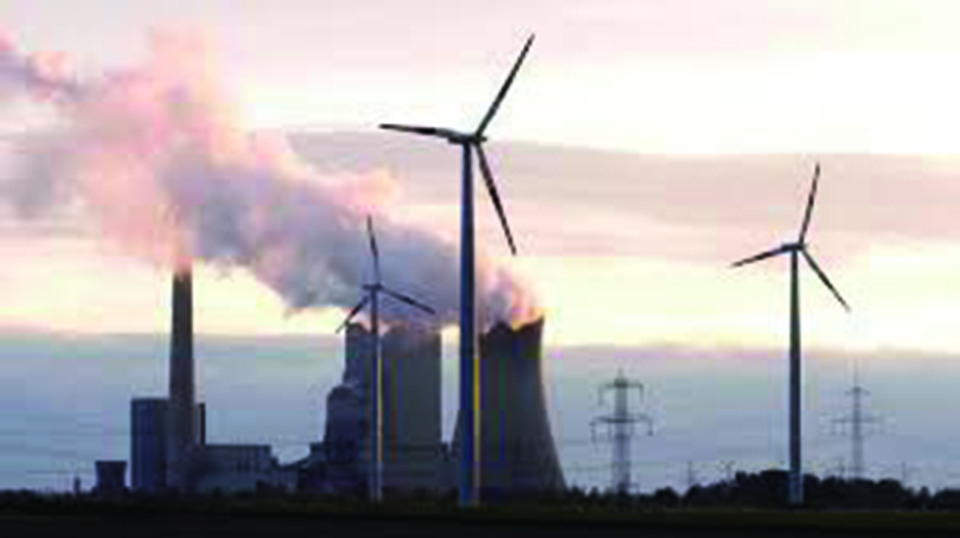
OR


Simone Galimberti
Simone Galimberti is the Co-Founder of ENGAGE, an NGO partnering with youths to promote social inclusion in Nepal.simone_engage@yahoo.com
Climate change and environment preservation are defining issues of our times. We need to take action, individually and collectively
The Intergovernmental Science-Policy Platform on Biodiversity and Ecosystem Services (IPBES) is gathering this week in Paris to assess the latest trends shaping the planet with two key central questions: Are we doing enough to conserve and preserve our natural habitats, maintaining and enriching our diverse ecosystems? Are we heading toward a sustainable future for our planet? Or are we going the opposite direction, toward a future rich in recurrent natural calamities with lethal consequences for all of us?
During the high level discussions powered by hundreds of scientists and policy makers from all over the world, IPBES will release the first Global Assessment Report on Biodiversity and Ecosystem Services since 2005. The answers to above questions are really gloomy.
Indeed the report is going to offer another key piece of evidence that will prove that we are not on the right path but rather we are gearing toward more and more human induced natural catastrophes that are going to put at risk our own existence.
Ominous signs
The sixth Global Environmental Outlook released in mid-March in Nairobi during the fourth UN Environment Assembly offers clear insights on how bad things are going to look in a not so remote future.
Joyce Msuya, Acting Executive Director of UN Environment said: “We are at a crossroads. Do we continue on our current path, which will lead to a bleak future for humankind, or do we pivot to a more sustainable development pathway? That is the choice our political leaders must make, now”.
I have never been a real environmental guy. Of course I am always very careful at not throwing plastics or papers while I walk but I see people doing exactly opposite. In such circumstances I just give a stern look of disapproval. Each of us needs to show a stronger personal leadership and personal accountability on issues related to environment and climate change. As members of this planet, we need to do more, starting from small, basic things that each of us can do.
I always thought of environment, climate change and sustainable development as “niche” areas, way too technical for me to really grasp a basic understanding of them. How wrong I was. I am reading one of the most authoritative books on climate change and environment This Changes Everything by the acclaimed Canadian author and activist Naomi Klein. Like me and many others, Klein admits that for too long she did not pay much attention to climate change, “I denied climate change for longer than I care to admit. I only skimmed most of the stories, especially the really scary ones,” she writes.
I am doing a research on Sustainable Development Goals (SDGs)’s “must do” plan embedded in the Agenda 2030, the defining blue print agreed in 2015 that pushes for environmental, economic and social progress and justice. Many of us know that the degrading environmental status of our planet caused by increasing levels of pollution and waste is the source of climate change and, as consequence, our livelihoods are being adversely impacted. But we are not taking actions. The SDGs could really make the difference if fully embraced. We need to advocate for their implementation but this won’t be enough. Every single person should take action. Public participation in Save Bagmati Campaign offers inspiration but these best practices might not be enough. Students can make a difference too. We see how global protest movements kicked off by Greta Thunberg, a young teen activist from Sweden and by many bold youths like her all over the world, are trying to push policy makers for radical steps to save the planet.
Together we win
Students in Nepal can take the lead. They can carry out smart and refreshing peaceful campaigning and lead through actions. In the UK, National Union of Students (NUS) has come up with an incredible array of programs, some of which like Green Impact works like a certification program that rewards students for their environmental actions. At the University of Uppsala in Sweden, Centre for Environment and Development Studies (CEMUS) is pioneering a new way of teaching sustainability and environment related issues—thanks to full engagement of students who co-designed all the courses.
Many schools and colleges have Green Committees or environmental clubs. What is their impact? How much energy is the college management putting in to turn them into micro-environmental hubs and mini-centers to engage the local communities?
Environment and climate change should not be dealt with separately like they were standing alone areas. Climate change and environment sustainability are cross-cutting topics and they should be embedded in all the extracurricular activities. Besides, we should not just delegate the task of creating awareness on climate change to environment or science teachers. Each teacher should do it on her own way, using creativity and ingenuity, bringing in different but all enriching points of view.
Sustainable education, championed globally by UNESCO, should be revamped in creative ways where students learn and practice it. For example, Higher Education Sustainable Initiative (HESI) is a great platform for doing this. Schools should teach kids to be vocal in matters of environment and climate change because each single plastic thrown on the streets makes the difference for the worst. Equally we cannot just expect kids to take action. Each of us can do something. Citizens should do something about the eco-sustainability policies of the government.
Even small and apparently insignificant gestures count. Let’s use less plastic, let’s at least ensure no one of our friends and family members throws papers in the street, let’s walk more and let’s be creative to promote environment sustainability in our ways. While pushing and nudging the federal and local governments for more actions on this front, let’s not forget that the fight against climate change and environmental degradation starts with us.
The author is the Co-Founder of ENGAGE, an NGO partnering with youths living with
disabilities
simone_engage@yahoo.com
You May Like This

Rising threat of pollution
Right to clean environment is the fundamental right granted by the constitution. Health of general public should not be compromised... Read More...

Together against pollution
Air pollution should be controlled immediately. Otherwise, we will witness huge loss in human resources, production and economic growth ... Read More...

African malaria threat
Malaria imported from African continent has been increasing steadily in the last few years, and is posing unnoticed public health... Read More...

Just In
- World Malaria Day: Foreign returnees more susceptible to the vector-borne disease
- MoEST seeks EC’s help in identifying teachers linked to political parties
- 70 community and national forests affected by fire in Parbat till Wednesday
- NEPSE loses 3.24 points, while daily turnover inclines to Rs 2.36 billion
- Pak Embassy awards scholarships to 180 Nepali students
- President Paudel approves mobilization of army personnel for by-elections security
- Bhajang and Ilam by-elections: 69 polling stations classified as ‘highly sensitive’
- Karnali CM Kandel secures vote of confidence


















Leave A Comment